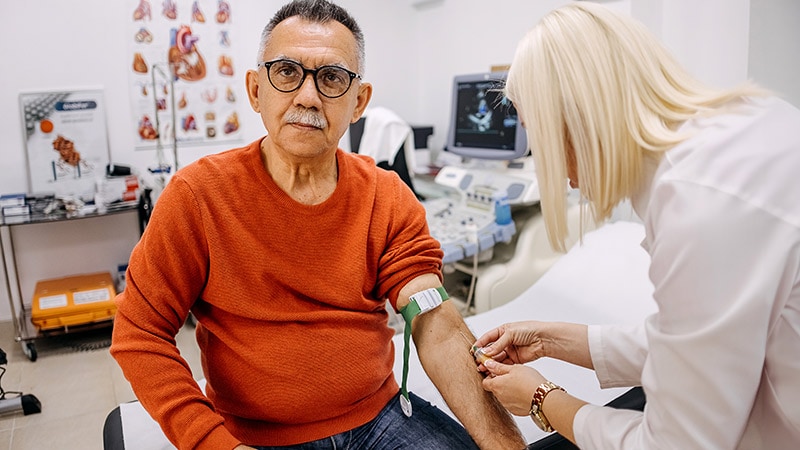A minority of patients with metastatic castration-resistant prostate cancer in the US undergo genetic testing for homologous recombination repair (HRR) mutations, which can influence treatment decisions like the use of PARP inhibitors. A study found that 37.7% of patients received HRR testing, with rates peaking in 2020. Factors associated with lower odds of testing included earlier diagnosis, certain disease characteristics, lower socioeconomic status, and older age. The timing of testing in relation to initiating first-line therapy improved over time. The study, published in JAMA Oncology, highlighted disparities in access to genetic testing and potential targeted therapies for eligible patients.
Source link
Genetic Testing Low in Castration-Resistant Prostate Cancer
